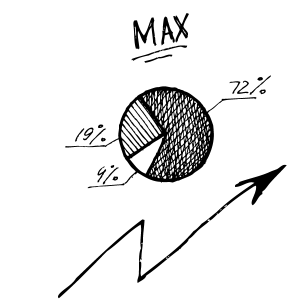Nevada requires a settlement conference before a case may be appealed to the Supreme Court., each party and its attorneys meet with a settlement judge. The judge cannot make any decisions regarding the outcome, but will listen to each side, critiquing and advising both sides. 1 The Settlement Program
The Supreme Court’s Settlement Program is an ADR program. Started in 1997, since its inception, 53% of the cases assigned to the program have settled. The program is governed by the Nevada Rule of Appellate Procedure 16 ( NRAP 16 ).
2 How Does It Work?
Mediation is a process in which an impartial third party, a Settlement Judge, assists the parties in reaching a mutually acceptable solution to their dispute. The settlement judge doesn’t decide the outcome of the case, but rather assists the parties in communicating their positions and interests in order to promote understanding, reconciliation, and a mutually acceptable solution to the dispute. In doing so, the settlement judge may ask questions, help define issues, and assist in the generation and evaluation of settlement proposals. Mediation provides the parties with an opportunity to resolve their case themselves.
3 The Settlement Judges
Settlement judges are required to have a high degree of training and experience in mediation skills. Most settlement judges also have significant legal experience as practicing attorneys, All settlement judges’ professional biographies are available on the Nevada Supreme Court Web Site.
4 Can A Settlement It Be Avoided?
Pro Per, Child Custody and Class Action matters are Exempt from the Program. Just about all other cases are in unless the settlement judge determines the case is not appropriate for mediation.
5 What to Expect
The settlement judge will conduct a pre-mediation telephone conference with all counsel. This conference is held to assist the settlement judge in evaluating whether the case is appropriate for mediation. If the settlement judge determines that the case is appropriate for mediation he or she will work with counsel to schedule a mediation session. Once the clerk’s office sends out a notice, of inclusion in the program all appeals are stayed. this notice will include information on the settlement judge assigned to the case. Once the first notice goes out, the time for requesting and filing transcripts and filing briefs is also stayed.
<div class="legal_guide_content"> <div id="content_body"> <div class="guide_summary"> Nevada requires a settlement conference before a case may be appealed to the Supreme Court., each party and its attorneys meet with a settlement judge. The judge cannot make any decisions regarding the outcome, but will listen to each side, critiquing and advising both sides. </div> <div class="step"> <div class="step_number"><span class="number">1</span></div> <h2>The Settlement Program</h2> <p>The Supreme Court’s Settlement Program is an ADR program. Started in 1997, since its inception, 53% of the cases assigned to the program have settled. The program is governed by the Nevada Rule of Appellate Procedure 16 ( NRAP 16 ).</p> </div> <div class="step"> <div class="step_number"><span class="number">2</span></div> <h2>How Does It Work?</h2> <p>Mediation is a process in which an impartial third party, a Settlement Judge, assists the parties in reaching a mutually acceptable solution to their dispute. The settlement judge doesn’t decide the outcome of the case, but rather assists the parties in communicating their positions and interests in order to promote understanding, reconciliation, and a mutually acceptable solution to the dispute. In doing so, the settlement judge may ask questions, help define issues, and assist in the generation and evaluation of settlement proposals. Mediation provides the parties with an opportunity to resolve their case themselves.</p> </div> <div class="step"> <div class="step_number"><span class="number">3</span></div> <h2>The Settlement Judges</h2> <p>Settlement judges are required to have a high degree of training and experience in mediation skills. Most settlement judges also have significant legal experience as practicing attorneys, All settlement judges’ professional biographies are available on the Nevada Supreme Court Web Site.</p> </div> <div class="step"> <div class="step_number"><span class="number">4</span></div> <h2>Can A Settlement It Be Avoided?</h2> <p>Pro Per, Child Custody and Class Action matters are Exempt from the Program. Just about all other cases are in unless the settlement judge determines the case is not appropriate for mediation.</p> </div> <div class="step"> <div class="step_number"><span class="number">5</span></div> <h2>What to Expect</h2> <p>The settlement judge will conduct a pre-mediation telephone conference with all counsel. This conference is held to assist the settlement judge in evaluating whether the case is appropriate for mediation. If the settlement judge determines that the case is appropriate for mediation he or she will work with counsel to schedule a mediation session. Once the clerk’s office sends out a notice, of inclusion in the program all appeals are stayed. this notice will include information on the settlement judge assigned to the case. Once the first notice goes out, the time for requesting and filing transcripts and filing briefs is also stayed.</p> </div> </div> </div>

-c19f8.png)

